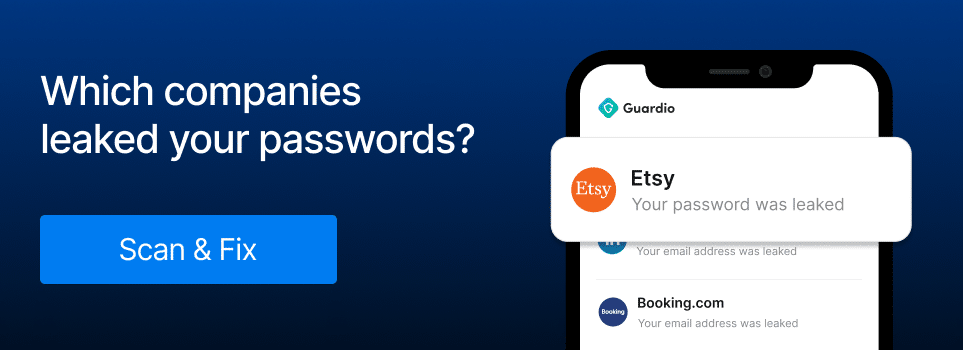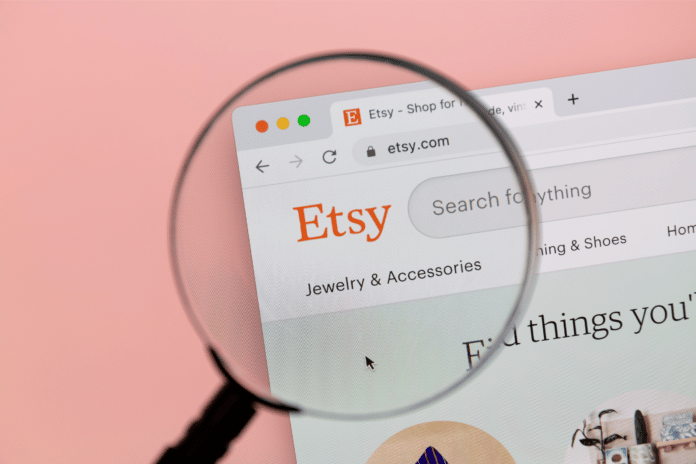Etsy is one of the most popular online marketplaces in the world, allowing users to sell and purchase handmade crafts and other products. It has become a significant player in E-Commerce by providing an easy way for creative individuals to earn income and monetize their skills. Unfortunately, as is the case with any popular marketplace, it is also becoming the target of increasing scams and frauds that users must be aware of. In this article, we go over some of the key frauds and scams on the Etsy platform and how to guard yourself against them.
Scams on Etsy
Some of the most common scams carried out against Etsy are:
- Phishing: Any platform with a large user base will inevitably find itself targeted by phishing attacks, and Etsy is no different. Scammers abuse people’s trust in Etsy by sending emails that appear to originate from the platform asking users to complete their transactions or unlock their accounts by clicking on malicious links. The Etsy user base often consists of individuals who are typically not tech-savvy. Legitimate-looking emails can easily trick them and make them fall prey to these scams resulting in their credentials being compromised. It is essential to be aware of these scams and be wary of any email that alleges to be from Etsy asking you for personal information. It is recommended to contact the seller directly and verify any request. Users can also notify Etsy of suspicious seller accounts they feel are committing identity theft.
- Fraudulent Seller profiles: In this scam, buyers are tricked by fake seller profiles that pretend to be from locations like the U.S., UK, Australia, etc., to create a fake sense of trust and legitimacy. They offer products that do not exist or are counterfeit goods and lure buyers by offering prices that are often too good to be true. Users should immediately be aware of such profiles that do not contain many reviews and offer massively reduced prices. Another red flag is if the buyer asks for the payment to be completed outside the platform, as this will disqualify the transaction from any Etsy protection in case of fraud.
- Fraudulent Shipping Notices: One of the more common scams on Etsy is the fake shipping notice in which the seller provides a shipping notice to confirm that the item has been purchased or shipped. But in reality, nothing has been shipped, and the buyer is just using this fake notice to buy time. Verifying the buyer’s history via reviewers and user comments is essential to ensure they have a trusted reputation on the platform. Verify any shipping invoices or notices you receive and contact Etsy customer service if anything seems off about the transaction.
- The “Bait and Switch” scam: Bait and Switch is an old technique long before Etsy in which scammers promise buyers a valuable item to lure them in and provide something else. The same technique is applied on the platform where products are advertised with particular features, but the reality is entirely different, and the buyer changes the deal once the transaction is made. For example, promising early delivery but instead delaying the order or charging extra for items assumed to be part of the product itself. Again, review the product description and user reviews for any deceptive practices. Cancel the order if you feel that the buyer is being deliberately misleading.
- Deceptive Return / Exchanges practices: In this scam, the scammer abuses the return and exchange policy within the platform and takes advantage of it. Buyers could be charged excessively for returns or not receive a refund. Review the return and exchange policy of a product before making a purchase. If the terms seem too ambiguous, this might be a red flag that this buyer should avoid. Again, contact Etsy customer support if you feel that the buyer is being misleading or deceptive.

These were just a few of the common scams on the Etsy platform. Buyers need to be aware of red flags that might indicate they are dealing with a scammer:
- The Etsy store profile and history contain a lot of typos and grammatical errors, with very few sales
- Product images seem to be taken from other sellers on the platform
- Shipping timelines and rates seem to be unreasonably high
- Negative customer reviews are present, complaining about the seller’s practices.
- Positive reviews seem “fake” and seem to be repeating the exact phrases over and over again.
What to do if scammed?
While prevention and awareness are the best control, even the most vigilant buyers can get scammed by deceptive sellers. If you feel you have fallen victim to one of the scams listed, contact Etsy immediately and inform them. Etsy has strict policies and will investigate and remove sellers abusing the platform with fraudulent activities. Its resolution center can also be contacted if you have lost money in the scam. In conclusion, while Etsy is a fantastic platform, its popularity also makes it the target of numerous scams that buyers must be aware of for a safe and secure buying experience!

Frequently Asked Questions
What are the common scams on Etsy?
Some common scams on Etsy include phishing, fraudulent seller profiles, fake shipping notices, bait and switch, and deceptive return/exchange practices.
How can I protect myself from scams on Etsy?
To protect yourself, always verify the authenticity of emails from Etsy, especially those asking for personal information. Be cautious of seller profiles offering too-good-to-be-true prices, and verify their history through reviews and comments. Also, scrutinize shipping notices and avoid sellers who promise one thing and deliver another.
What should I do if I fall victim to an Etsy scam?
If you believe you’ve been scammed on Etsy, contact Etsy immediately to inform them about the fraudulent activity. You can also report the scam to Etsy’s Resolution Center, especially if you’ve lost money due to the scam.
Does Etsy have measures in place to tackle scams?
Yes, Etsy has strict policies against fraudulent activities and will investigate reported scams and remove sellers found to be conducting fraudulent activities on the platform.

